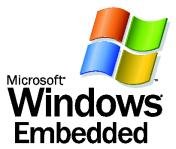Article: Windows, Linux grapple in Great Gadget Smack-Down!
Feb 15, 2005 — by LinuxDevices Staff — from the LinuxDevices Archive — views Impassioned battles between Linux and Windows partisans are no longer confined to the desktop and server arenas. With the growing ubiquity of smart devices, the device arena offers action every bit as intense, justifying massive vendor technology investments, high-dollar PR campaigns, and generous helpings of technical hyperbole from both… corners, which contribute to a pugilistic aura not unlike that found at a WWF wrestling championship.
Impassioned battles between Linux and Windows partisans are no longer confined to the desktop and server arenas. With the growing ubiquity of smart devices, the device arena offers action every bit as intense, justifying massive vendor technology investments, high-dollar PR campaigns, and generous helpings of technical hyperbole from both… corners, which contribute to a pugilistic aura not unlike that found at a WWF wrestling championship.
What really matters for the spectators, though, are the actual devices produced by the respective competitors.
We therefore have decided to hold the first-ever “Great Gadget Smack-Down,” pitting OS vs. OS. Not on paper, according to oft-conflicting market share estimates, feature and architecture claims, or purported time-to-market benefits — but instead, where it really counts: based on which OS powers the best gadgets.
The obligatory pre-game commentary
The total overall embedded software market is generally valued at upwards of a billion dollars and growing, so clearly much is at stake. This mega-match pits the two leading contenders for the device OS world championship against each other in a fight to the finish.
 In one corner, we have Microsoft, a company that seems destined to conquer almost any arena it focuses on thanks to its virtually limitless corporate resources. For example, in the last quarter alone Microsoft raked in upwards of $11 billion dollars in revenue, according to its latest quarterly report. Of that amount, the Redmond giant derived $85 million from its Mobile and Embedded Devices segment, up 46 percent from the corresponding quarter in 2003. Microsoft says its “Windows Embedded” operating systems were ranked first among embedded OSes by market analyst firms Gartner and VDC for 2003, and led the pack in revenue from 2001 through 2003 based on data from IDC and VDC (related story). Additionally, Gartner recently reported that Windows CE was the leading OS in 2004 worldwide PDA shipments.
In one corner, we have Microsoft, a company that seems destined to conquer almost any arena it focuses on thanks to its virtually limitless corporate resources. For example, in the last quarter alone Microsoft raked in upwards of $11 billion dollars in revenue, according to its latest quarterly report. Of that amount, the Redmond giant derived $85 million from its Mobile and Embedded Devices segment, up 46 percent from the corresponding quarter in 2003. Microsoft says its “Windows Embedded” operating systems were ranked first among embedded OSes by market analyst firms Gartner and VDC for 2003, and led the pack in revenue from 2001 through 2003 based on data from IDC and VDC (related story). Additionally, Gartner recently reported that Windows CE was the leading OS in 2004 worldwide PDA shipments.
 In the opposite corner, we have open source Linux, which market analyst EDC found to be the number one choice of embedded developers in a 2003 survey, and which topped VDC's 2004 developer survey as the OS used more than any other in recent embedded projects, besting Windows Embedded (Windows CE + Windows XP Embedded) by 4.5 percentage points. Then there was a Canalys market report that concluded that Linux is the fastest growing OS in the mobile device market.
In the opposite corner, we have open source Linux, which market analyst EDC found to be the number one choice of embedded developers in a 2003 survey, and which topped VDC's 2004 developer survey as the OS used more than any other in recent embedded projects, besting Windows Embedded (Windows CE + Windows XP Embedded) by 4.5 percentage points. Then there was a Canalys market report that concluded that Linux is the fastest growing OS in the mobile device market.
From the geographic perspective, Gartner concluded that in 2003, Linux became the number one embedded OS in Asia, the galactic capital of consumer electronic devices. There, wariness of vendor lock-in or per-unit cost considerations may motivate consumer electronic (CE) device makers to use Linux, as may the efforts of the Consumer Electronic Linux Foundation (CELF) to standardize and improve Linux for CE devices. However, the popularity and power of the Windows brand may help Microsoft win in geographic markets where its desktop and server operating systems are popular, and Microsoft has aggressively reduced its OS royalties and made its source code available to counter competition from linux.
It also seems likely that one OS or the other will rule the roost in specific vertical segments of the embedded market. Witness a 2003 report from VDC comparing Linux and Windows embedded development, which ponders the possibility that Microsoft's Windows Embedded OSes — with preconfigured versions targeting specific device types such as smartphones, mobile handsets, portable media players, set-top boxes, tablet PCs, and more — may beat out Linux in certain types of projects and products, whereas Linux, with its near-limitless flexibility, may win in others.
Finally, don't overlook the study published last year by Embedded Market Forecasters which suggests that the use of Microsoft's Windows Embedded OSes and tools results in faster and less expensive development cycles for projects based on Windows Embedded, in comparison with those based on embedded Linux.
On paper, then, this match may be too close to call. But enough of this paper analysis and theoretical conjecture! Without further ado, let's let the devices speak for themselves!
Ladies and gentlemen . . .
The table below summarizes specific, finished-product devices featured at LinuxDevices.com and WindowsForDevices.com, two sister sites that maintain and frequently update “Quick Reference Guides” to embedded device design wins.
Keep in mind that these Guides represent only the tip of the iceberg, since there's no way we could cover every one of the thousands of embedded devices out there. However, if you notice a device missing that you think we should cover, please let us know about it, and we'll do our best, provided the company is willing to share some details of their implementation.
Here's the latest tally, as of the end of Round 2, on February 15, 2005:
| Cool devices by OS — click each quantity to view devices | ||
|---|---|---|
| Category | Windows Embedded Devices |
Embedded Linux Devices |
| PDAs, handhelds | 88 devices | 40 devices |
| Mobile phones | 34 devices | 14 devices |
| VoIP phones/devices | 12 devices | 12 devices |
| Robots | (*) | 10 devices |
| Audio/video devices | 17 devices | 50 devices |
| Thin client devices | 23 devices | 16 devices |
| Tablets/webpads | 32 devices | 13 devices |
| Gateways, servers, APs | (*) | 46 devices |
| Other | 41 devices | 42 devices | TOTAL: | 247 devices | 243 devices |
(*) NOTE: this site covers this device category elsewhere.
The previous version (“Round 1”) of the above table is available here.
Which OS do you think wins from the real-world devices perspective? Which OS do you think will ultimately prevail, and in what market segments? Let us know, and share your thoughts with our readers! The LinuxDevices.com talkback thread for this discussion is located here.
Before you comment, be sure to visit each side's “Cool Devices” guide:
- The Embedded Linux “Cool Devices” Quick Reference Guide
- The Windows Embedded “Cool Devices” Quick Reference Guide
- Linux now top choice of embedded developers
- Linux mobile phone progress slower but deeper than expected
- Linux the fastest growing OS in mobile devices
- Linux to challenge Symbian for smartphone dominance
- Linux, Symbian, Microsoft scuffle in burgeoning smartphone market
- Linux squeezing WinCE, VxWorks out of devices
- Comparing Linux and Windows embedded development
- Microsoft-funded report claims embedding Linux costs more than embedding Windows
- EDC: Embedded Linux remains #1 choice of developers — despite tools dissatisfaction
- Linux, Windows neck-and-neck in embedded
- VDC Whitepaper: Linux's future in the embedded systems market
- Embedded Linux tops developers' 2002 wishlist
- Study finds 300% growth in Embedded Linux
- 2004 Embedded Linux market snapshot
This article was originally published on LinuxDevices.com and has been donated to the open source community by QuinStreet Inc. Please visit LinuxToday.com for up-to-date news and articles about Linux and open source.